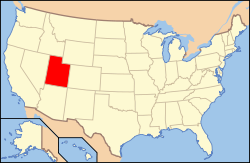
When someone is ill or incapacitated whether from a short stint in the hospital or a long-term illness- someone must step in and handle bill-paying, investment decisions, and other financial matters. Here’s how to give that authority to someone you choose and not leave it up to a court.
The Durable Power of Attorney: Health Care and Finances
Understand medical and financial powers of attorney and why you need to prepare both.
What if an accident or illness or simply the effects of aging left you unable to tell your doctors what kind of medical treatment you want, or made it impossible to manage your financial affairs? No one likes to consider such grim possibilities, but the truth is that almost every family will eventually face this kind of difficulty. While medical and financial powers of attorney can’t prevent accidents or keep you young, they can certainly make life easier for you and your family if times get tough.
What Is a Power of Attorney?
A power of attorney is a legal document that gives someone you choose the power to act in your place. In case you ever become mentally incapacitated, you’ll need what are known as “durable” powers of attorney for medical care and finances. A durable power of attorney simply means that the document stays in effect if you become incapacitated and unable to handle matters on your own. (Ordinary, or “nondurable,” powers of attorney automatically end if the person who makes them loses mental capacity.) With a valid power of attorney, the trusted person you name will be legally permitted to take care of important matters for you — for example, paying your bills, managing your investments, or directing your medical care — if you are unable to do so yourself.
Taking the time to make these documents is well worth the small effort it will take. If you haven’t made durable powers of attorney and something happens to you, your loved ones may have to go to court to get the authority to handle your affairs. To cover all of the issues that matter to you, you’ll probably need two separate documents: one that addresses health care issues and another to take care of your finances.
Fortunately, powers of attorney usually aren’t difficult to prepare.
Medical Power of Attorney
A medical power of attorney is one type of health care directive that is, a document that set out your wishes for health care if you are ever too ill or injured to speak for yourself.
When you make a medical power of attorney — more commonly called a “durable power of attorney for health care” — you name a trusted person to oversee your medical care and make health care decisions for you if you are unable to do so. Depending on where you live, the person you appoint may be called your “agent,” “attorney-in-fact,” “health care proxy,” “health care surrogate,” or something similar. Your health care agent will work with doctors and other health care providers to make sure you get the kind of medical care you wish to receive. When arranging your care, your agent is legally bound to follow your treatment preferences to the extent that he or she knows about them. To make your wishes clear, you can use a second type of health care directive — often called a “health care declaration” or “living will” to provide written health care instructions to your agent and health care providers. To make this easier, some states combine a durable power of attorney for health care and health care declaration into a single form, commonly called an “advance health care directive.”
Financial Power of Attorney
A financial power of attorney is a power of attorney you prepare that gives someone the authority to handle financial transactions on your behalf. Some financial powers of attorney are very simple and used for single transactions, such as closing a real estate deal. But the power of attorney we’re discussing here is comprehensive; it’s designed to let someone else manage all of your financial affairs for you if you become incapacitated. It’s called a “durable power of attorney for finances.” With a durable power of attorney for finances, you can give a trusted person as much authority over your finances as you like. The person you name is usually called your “agent” or “attorney-in-fact,” though he or she most definitely doesn’t have to be an attorney. Your agent can handle mundane tasks such as sorting through your mail and depositing your Social Security checks, as well as more complex jobs like watching over your retirement accounts and other investments, or filing your tax returns. Your agent doesn’t have to be a financial expert; just someone you trust completely who has a good dose of common sense. If necessary, your agent can hire professionals (paying them out of your assets) to help out.
Why You Need Separate Documents for Medical Care and Finances
You may wonder why you can’t cover health care matters and finances in just one power of attorney document.
Technically, you could but it isn’t a good idea. Making separate documents will keep life simpler for your agent and others.
For example, your health care documents are likely to be full of personal details, and perhaps feelings, that your financial broker doesn’t need to know. Likewise, your health care professionals don’t need to be burdened with the details of your finances. That said, even though you should make separate power of attorney documents for health care and finances, it makes a good deal of sense to name the same agent under both documents. If not, you must be sure to name people who will work well together.
Common Mistakes in Financial Powers of Attorney In Riverton, Utah
Your financial power of attorney doesn’t need to be complicated or difficult to make, but it’s important that you do it correctly. Understanding the most common pitfalls will help you avoid mistakes and make the most of your power of attorney.
Here are six common mistakes in financial powers of attorney.
Not Giving Authority Over All Types of Property
When creating your financial power of attorney, you might be tempted to give authority over just the types of property you currently own. That can be a mistake because you don’t know what you’ll own in the future. When you make a financial power of attorney, you can give your agent a lot of authority or very little. Basic forms often list various types of property, requiring you to check or initial each one to give your agent that authority. That list might look something like this:
• Real property
• Tangible personal property
• Digital property
• Stocks and bonds
• Commodities and options
• Banks and other financial institutions
• Operation of entity or business
• Insurance and annuities
• Estates, trusts, and other beneficial interests
• Claims and litigation
• Personal and family maintenance
• Benefits from governmental programs or civil or military service
• Retirement plans
• Taxes
Looking at that list, you’ll see some types of property you don’t have. For example, you might not own “commodities and options.” You might be tempted to skip that category, thinking it doesn’t apply to you.
There are two problems with that:
1. You might not know what is and is not included in each category. What’s considered “digital property”? What does “other beneficial interests” mean? A category could apply to you without you realizing it.
2. You don’t know the future. You might inherit some stocks from your grandmother. You might start a side business three years from now. Your agent needs the power to deal with whatever comes up.
The best approach is to grant general authority over all types of property, even property you don’t currently own. It’s best for your agent to have the authority, even if they never use it.
Exception: Do not grant any powers to your agent that makes you uncomfortable. Specifically, if you have concerns about your agent’s ability to manage certain types of property or if you think that your agent might take advantage of you financially, consider other options, such as limiting the power you grant, setting up a trust instead, naming an additional person to advise or supervise your agent, or relying on a court-supervised guardianship. If you have questions or concerns, get help from an attorney.
Making Your Agent Joint Owner of Your Bank Account
The most common task for agents is writing checks and paying bills from your bank account. To do this, you’ll have to add your agent’s name to the account. That’s when you might mistakenly add your agent as a joint owner. Adding a name to the account” can mean two different things. It can mean the person is authorized under your power of attorney to manage the account on your behalf. Or it can mean the person is a joint owner with full authority to use the account as his or her own. You might unknowingly add a family member’s name to your account as a joint owner. It happens all the time. If you do this, that account will immediately become that person’s property when you die—no matter what your will says. That will mean:
• Your property will be vulnerable to your agent’s creditors and liabilities.
• Your agent may get property you never wanted to give to him or her. This might mean your agent gets more of your estate than you intended, and others less.
• Even if your agent understands the mistake and voluntarily distributes the account to the beneficiaries you intended, it will complicate the administration of your estate.
Avoiding this mistake is easy. After you complete your financial power of attorney, take it to the bank. Make it clear you do not want to add your agent as a joint owner, but under your power of attorney.
Not Working With Your Financial Institutions in Advance
It’s natural to assume that, like a power of attorney for health care, your financial power of attorney will be readily accepted by any financial institution or government agency. But that often isn’t the case. Working with your financial institutions now can prevent delay in the future. Financial institutions reject financial powers of attorney all the time. Some want to see specific things in a power of attorney document, such notarization (even though a financial power of attorney in many states does not have to be notarized to be valid). Others want you to use their own form or attach a lengthy form and certification. And for some companies, the process of receiving, reviewing, and approving your power of attorney can take weeks or even months. Government entities aren’t much better. Especially big agencies like Social Security, which have their own procedures you must follow. It’s best to anticipate these difficulties before time is short.
Not Understanding Your Agent’s Duties
Your power of attorney doesn’t just give your agent legal authority—it also imposes legal duties. For example, your agent has a duty to act according to your wishes. Your power of attorney should lay out a full list of your agent’s duties. Your state probably has a statute that defines these duties by default. Your agent must follow those defaults unless your document specifies different duties. Varying your agent’s duties away from the statutory requirements can be useful in some situations.
For example, the default duty to keep detailed records isn’t always needed. This duty can become a huge burden because it forces the agent to keep track of every receipt and document. Many agents don’t have the time to be so meticulous. If you trust your agent, removing this duty could make the job much easier. Whether or not you choose to change your agent’s default duties, you should know your state’s default rules. And so should your agent.
Not Knowing When to Give Extra Authority to Your Agent
If you look at a simple financial power of attorney form, you might not realize that there are significant powers it does not include. You should know about these possibilities so that you can decide whether to give your agent extra authority.
Basic powers of attorney usually don’t include the authority to:
• Make gifts from your property
• Create or amend trusts
• Change beneficiary designations on life insurance and retirement accounts
• Delegate the agent’s powers to another person
Many power of attorney forms don’t include these powers because they are dangerous if given to the wrong person. If not exercised with care and good judgment, these powers can deplete your property and ruin your estate plan. But if you trust your agent without reservation and want your agent to have as many options for taking care of you as possible, these powers can be very useful. Because these extra powers can be dangerous in the wrong hands, you should always talk to an attorney before including them in your power of attorney document.
Not Using It
The last common mistake is perhaps the simplest: not using it. Your power of attorney is probably effective as soon as you sign it. That means your agent can be added to your bank accounts and conduct transactions on your behalf right away. It’s a good idea to give a copy of your power of attorney to your bank, at the very least.
Consider sending it to your life insurance, investments, and retirement companies as well. If you have a financial adviser, don’t have to wait until catastrophe strikes, give him or her copy too. That way your agent is ready to step in at a moment’s notice.
You don’ manage your own affairs. You can put your agent to work right now. For example, you might need someone to sign papers at a real estate closing while you’re out of town. You can have your agent sign the papers for you. In fact, many people use limited powers of attorney just for these situations.
Free Initial Consultation with Lawyer
It’s not a matter of if, it’s a matter of when. Legal problems come to everyone. Whether it’s your son who gets in a car wreck, your uncle who loses his job and needs to file for bankruptcy, your sister’s brother who’s getting divorced, or a grandparent that passes away without a will -all of us have legal issues and questions that arise. So when you have a law question, call Ascent Law for your free consultation (801) 676-5506. We want to help you!
8833 S. Redwood Road, Suite C
West Jordan, Utah
84088 United States
Telephone: (801) 676-5506
Recent Posts
Estate Planning Attorney In Orem Utah
Estate Planning Attorney In Parowan Utah
Estate Planning Attorney In Richmond Utah
Divorce Lawyer and Family Law Attorneys
Ascent Law St. George Utah Office
Ascent Law Ogden Utah Office
Riverton, Utah
Coordinates: 40°31′14″N 111°57′19″WCoordinates: 40°31′14″N 111°57′19″WCountryUnited StatesStateUtahCountySalt LakeSettled1865Incorporated1947Named forJordan RiverGovernment
• MayorTrent Staggs • City CouncilSheldon Stewart, Troy McDougal, Tawnee McCay, Tish Buroker, Claude Wells • City ManagerDavid R. BrickeyArea
• Total12.58 sq mi (32.59 km2) • Land12.58 sq mi (32.59 km2) • Water0.00 sq mi (0.00 km2) 0%Elevation
4,439 ft (1,353 m)Population
• Total45,285 • Density3,600/sq mi (1,400/km2)Time zoneUTC−7 (MST) • Summer (DST)UTC−6 (MDT)ZIP code
Area code(s)385, 801FIPS code49-64340[2]GNIS feature ID1431862[3]Websitehttp://rivertonutah.gov
Riverton is a city in Salt Lake County, Utah, United States. It is part of the Salt Lake City, Utah Metropolitan Statistical Area. The population was 45,285 as of the 2020 census.[4] Riverton is located in the rapidly growing southwestern corner of the Salt Lake Valley.[5]
[geocentric_weather id=”6c027265-f7e8-4373-93b2-45570a0d47eb”]
[geocentric_about id=”6c027265-f7e8-4373-93b2-45570a0d47eb”]
[geocentric_neighborhoods id=”6c027265-f7e8-4373-93b2-45570a0d47eb”]
[geocentric_thingstodo id=”6c027265-f7e8-4373-93b2-45570a0d47eb”]
[geocentric_busstops id=”6c027265-f7e8-4373-93b2-45570a0d47eb”]
[geocentric_mapembed id=”6c027265-f7e8-4373-93b2-45570a0d47eb”]
[geocentric_drivingdirections id=”6c027265-f7e8-4373-93b2-45570a0d47eb”]
[geocentric_reviews id=”6c027265-f7e8-4373-93b2-45570a0d47eb”]






